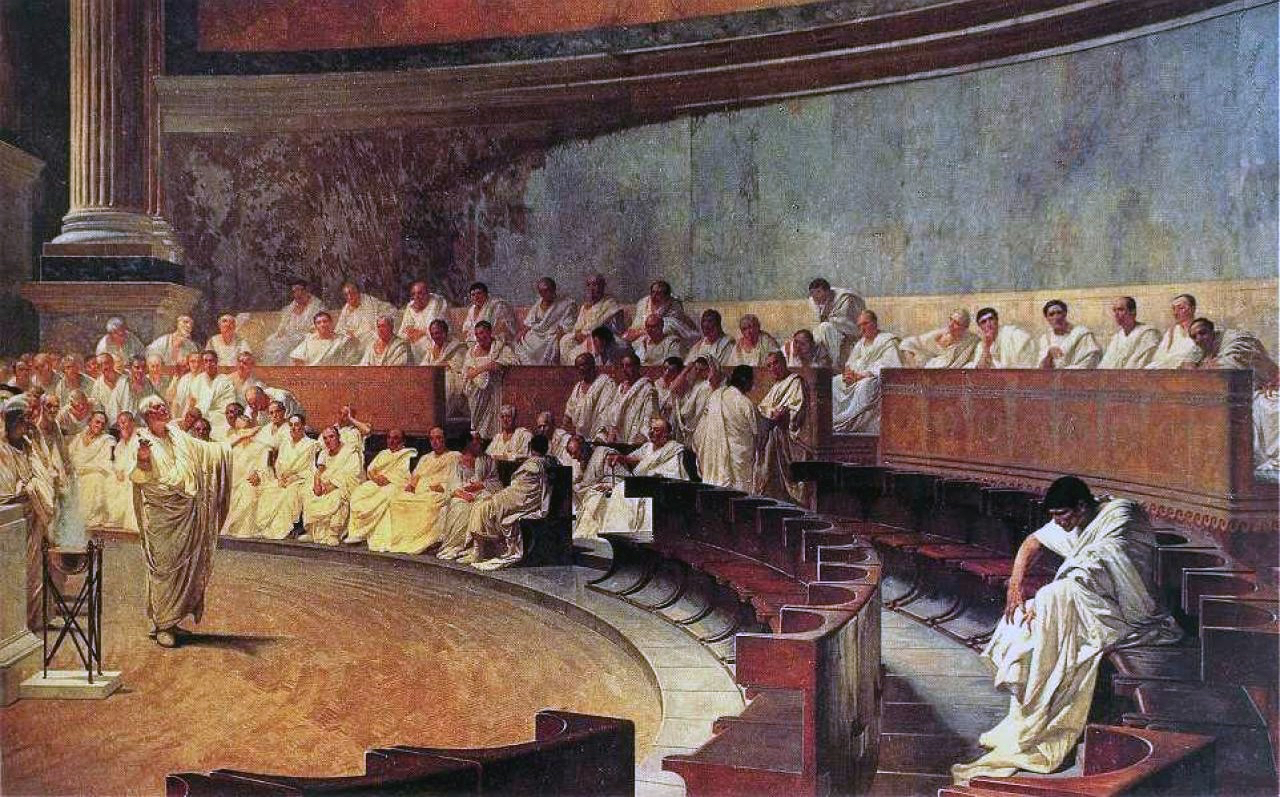Menu

 My last two posts in this mini series selecting on the post-fact issue are going to titled with quotes from Cicero. Today’s is translated as Not for ourselves alone are we born. That itself summarises much of what I have been trying to say in my earlier posts on virtue and grace. Cicero remember was the last defended or the Republic, he understood the danger of Ceasar’s populism and use of the mob and was finally assassinated as a part of a cynical compromise by Octavian with Mark Antony. His work profoundly influenced the birth of modern democracy, to quote John Adams: As all the ages of the world have not produced a greater statesman and philosopher united than Cicero, his authority should have great weight. I fell in love with his writings many decades ago. He was one of the sources when I was taught the art of rhetoric back in the sixth form in the early 70s. If you want an easy introduction read Robert Harris’s three novels that are based on his life and portray both strengths and weakness.
My last two posts in this mini series selecting on the post-fact issue are going to titled with quotes from Cicero. Today’s is translated as Not for ourselves alone are we born. That itself summarises much of what I have been trying to say in my earlier posts on virtue and grace. Cicero remember was the last defended or the Republic, he understood the danger of Ceasar’s populism and use of the mob and was finally assassinated as a part of a cynical compromise by Octavian with Mark Antony. His work profoundly influenced the birth of modern democracy, to quote John Adams: As all the ages of the world have not produced a greater statesman and philosopher united than Cicero, his authority should have great weight. I fell in love with his writings many decades ago. He was one of the sources when I was taught the art of rhetoric back in the sixth form in the early 70s. If you want an easy introduction read Robert Harris’s three novels that are based on his life and portray both strengths and weakness.
Rhetoric was taught to all aspiring politicians in the Roman republic and also within the liberal arts tradition of the UK and US until recently. It may still be taught in some enlightened pockets but I doubt it. Rhetoric is the art of persuasion, the ability to argue a case. Some people have that naturally, others have (as did Cicero) to acquire it through a painful process of education. I’ve posted before on the education I received in which once a week I had to speak without preparation on a subject, and had to argue positions I fundamentally disagreed with. The point of this is that the ability to see things from different perspectives makes you more able to see the weakness in propaganda, it rewards intelligent criticism. So let me now move to a contemporary of Rahner, the Lutheran Theologian and political activist Dietrich Bonhoeffer and an extract from his writing:
Stupidity is a more dangerous enemy of the good than malice. One may protest against evil; it can be exposed and, if need be, prevented by use of force. Evil always carries within itself the germ of its own subversion in that it leaves behind in human beings at least a sense of unease. Against stupidity we are defenseless; reasons fall on deaf ears; facts that contradict one’s prejudgement simply need not be believed–in such moments the stupid person even becomes critical–and when facts are irrefutable they are just pushed aside as inconsequential, as incidental. In all this the stupid person, in contrast to the malicious one, is utterly self-satisfied and, being easily irritated, becomes dangerous by going on the attack.
(Dietrich Bonhoeffer, Letters & Papers from Prison, 43)
A few weeks ago I was engaged in a discussion in the US, well an argument. The final put down I was received was one of the most scary things I have ever heard. The phrase was That is your education speaking. It was chilling, people wanted to live in their own narrow world of prejudice, education was rejected as a valid form of knowledge. Now I started with that point a few days ago so tomorrow (after a night at Stratford being educated and entertained) I will return to Cicero and conclude this series.
The picture used for this post is Cicero Denounces Catiline By Cesare Maccari
Cognitive Edge Ltd. & Cognitive Edge Pte. trading as The Cynefin Company and The Cynefin Centre.
© COPYRIGHT 2024

Rahner, who I referenced yesterday stands in a tradition that traces itself back via Geist ...
Attempts to see a performance of the Seven Acts of Mercy at the RSC were ...